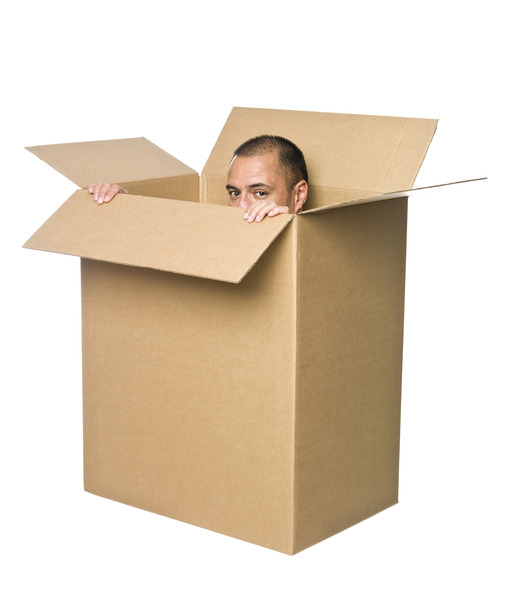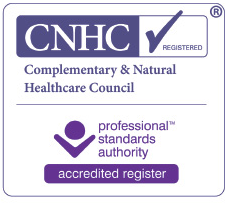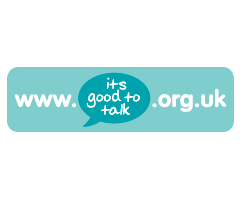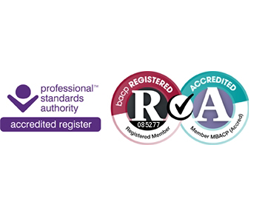This page is for anyone affected by anxiety or panic attacks, friends and relatives of people who experience anxiety and those who are starting out working with people who are affected may also find it useful.
The page is designed to illustrate some of the common causes of anxiety, its effects and what to do to reduce it to a manageable level.
It also provides some information about severe anxiety and panic attacks.
What is anxiety?
Anxiety is something we all experience from time to time. Most people can relate to feeling tense, uncertain and, perhaps, fearful at the thought of sitting an exam, going into hospital, attending an interview or starting a new job. We all tend to feel a little uncomfortable about appearing foolish or how successful you will be. For some of us it might just be the odd fleeting thought, for others these worries may affect sleep, appetite and ability to concentrate. If everything goes well, the anxiety will go away.
This type of short-term anxiety can be useful; it makes us feel more alive and alert, and enhances our performance … especially in sporting activities. However, if the feelings of anxiety overwhelm us, our ability to concentrate and do well may suffer.
The ‘fight or flight’ reflex
Anxiety and fear can protect you from danger. When you feel under threat, anxiety and fear trigger the release of hormones, such as adrenalin. Adrenalin causes your heart to beat faster to carry blood where it’s most needed. You breathe faster to provide the extra oxygen required for energy. You sweat to prevent overheating. Your mouth may feel dry; as your digestive system slows down to allow more blood to be sent to your muscles. Your senses become heightened and your brain becomes more alert.
These changes make your body able to take action and protect you in a dangerous situation either by running away or fighting. It is known as the ‘fight or flight’ reflex. Once the danger has passed, other hormones are released, which may cause you to shake as your muscles start to relax.
This response is useful for protecting you against physical dangers; for example, it can help you run away from wild animals, attackers, fires etc very quickly. The response is not so useful if there is no fire or no wild animal to run away from, because, if there is no physical threat, and you have no need to physically run away or fight, the effects of adrenaline subside more slowly, and you may go on feeling agitated for a long time.
Severe anxiety
If the anxiety stays at a high level for a long time, you may feel out of control, you might start to feel anxious about feeling anxious … and this makes it difficult to deal with everyday life. When the anxiety is this severe you may feel powerless, out of control, as if you are about to die or go mad. Sometimes, if the feelings of fear overwhelm you, you may experience a panic attack.
What is a panic attack?
A panic attack is an exaggeration of the body’s normal response to fear, stress or excitement. It is the rapid build-up of overwhelming sensations, such as a pounding heartbeat, feeling faint, sweating, nausea, chest pains, breathing discomfort, feelings of losing control, shaky limbs and legs turning to jelly. If you experience this, you may fear that you are going mad, blacking out, or having a heart attack. You may be convinced you are going to die in the course of the attack – making this a terrifying experience.
Panic attacks come on very quickly, symptoms usually peaking within 10 minutes. Most panic attacks last for between 5 and 20 minutes. Some people report attacks lasting longer but this is rare and they are likely to be experiencing one attack after another, or a high level of anxiety after the initial attack. You may have one or two panic attacks and never experience another. Or you may have attacks once a month or several times each week. For some people they seem to come without warning and strike at random.
Panic attacks can also come in the night and wake you up. These nighttime attacks occur if your brain is on ‘high alert’ (due to anxiety) and can detect small changes in your body which it then interprets as a sign of danger. Night-time attacks may be particularly frightening, as you may feel confused and are helpless to do anything to spot them coming.
Why do some people feel more anxious than others?
If you worry more than others, it could be just the way you are and always have been – your personality, it might be that your current circumstances have altered and you are having difficulty adjusting or your past or childhood experiences may have something to do with it … or most likely it could be a mixture of these.
Everyday life and habits
Some things may make it worse; caffeine, excess sugar, poor diet, drug misuse, exhaustion, stress and the side effects of certain medication can also mimic and trigger symptoms of anxiety.
After a while, you can start to fear the symptoms of anxiety, especially feeling out of control. This sets up a vicious circle. You may feel anxious because you dread feeling the symptoms of anxiety, and then you experience those symptoms because you are having anxious thoughts.
What are the effects of anxiety?
- Anxiety can have an effect on both your body and your mind.
- Increased muscular tension can cause discomfort and headaches
- Rapid breathing may make you feel light-headed and shaky, and give you pins and needles.
- Rising blood pressure can make you more aware of a pounding heart.
- Changes in the blood supply to your digestive system may cause nausea and sickness.
- You may feel an urgent need to visit the toilet, and get ‘butterflies’ in your stomach.
- Fear combined with tension and lack of sleep can weaken your immune system, lowering your resistance to infection.
- You may experience digestive difficulties.
- You may also feel depressed… because you are missing out on life, to avoid the panic attacks.
Anxiety can make you more fearful, alert, on edge, irritable, and unable to relax or concentrate. You may feel an overwhelming desire to seek the reassurance of others, to be weepy and dependent.
The way you think can be affected: if you fear that the worst is going to happen, you may start to see everything negatively and become very pessimistic.
To cope with these feelings and sensations, you may feel tempted to start smoking or drinking too much, or misusing drugs. You may hold on to relationships that either encourage your anxious outlook or help you avoid situations you find distressing – and so stop you dealing with what’s worrying you.
If your anxiety is severe, you may find it difficult to hold down a job, develop or maintain good relationships, or simply to enjoy leisure time. Sleep problems may make your anxious feelings even worse and reduce your ability to cope.
For some people, anxiety becomes so overwhelming that it takes over their lives. Some people may develop a phobia about going out, or may withdraw from contact with people – even their family and friends. Others have obsessive thoughts or compulsive behaviour, such as endlessly washing their hands.
How can I learn to manage my anxiety myself?
There are many things you can do to reduce your anxiety to a more manageable level. Taking action may make you feel more anxious at first. Even thinking about anxiety can make it worse. Therefore, a common – and natural – response to anxiety is to avoid what triggers your fear. For example, if you are afraid of spiders, running away every time you see one, is likely to increase your fear. Avoiding an exam because you feel anxious is likely to make you feel worse. Therefore facing up to anxiety, and how it makes you feel, can be the first step in breaking the cycle of fear and insecurity.
At the onset of panic, I keep telling myself that I have been here before and that I get through it again. It will pass if I try to keep as calm as I can.
You may find that your symptoms can be controlled by breathing and relaxation techniques.
Some people may find that complementary therapies help them to relax, sleep better, and deal with the symptoms of anxiety. Yoga, meditation, aromatherapy, massage and hypnotherapy are some of the methods people have found helpful.
I find chamomile tea helpful when feeling very anxious. It calms my body down without the horrible side-effects of medication.
A healthy lifestyle
Exercise uses up the adrenalin and other hormones that are produced under stress, allowing muscles to relax. It can therefore help you to cope with anxiety and feelings of tension, and may help you sleep better. Walking and swimming allow you to be active at your own pace and you can do them alone or in company.
Eating a healthy diet and getting plenty of sleep can also make a big difference to your ability to cope with stress (see How to manage stress). You may find it easier to relax if you avoid stimulants such as coffee, cigarettes and alcohol.
Talking to a friend or family member about what’s making you anxious can help. You may find that they have encountered a similar problem and can talk you through it; however, just having had someone listen to you and showing that they care, can help in itself.
Talking treatments (counselling and psychotherapy) can help you to understand and deal with the causes of your anxiety and to find strategies for coping
Or hypnotherapy to help you learn to relax.
Useful contacts
Anxiety Care tel. 07552 877 219 web: anxietycare.org.uk
Helps people to recover from anxiety disorders.
Anxiety UK tel. 08444 775 774 web: anxietyuk.org.uk
Support, help and information for those with anxiety disorders.
British Association for Counselling and Psychotherapy (BACP) tel. 01455 883 300 web: bacp.co.uk
No Panic helpline: 0800 138 8889 FREE web: nopanic.org.uk
Provides a helpline, step-by-step programmes, and support for those with anxiety disorders.
Samaritans 24-hour helpline: 08457 90 90 90 email: jo@samaritans.org web: samaritans.org
Emotional support for anyone feeling down or struggling to cope.








